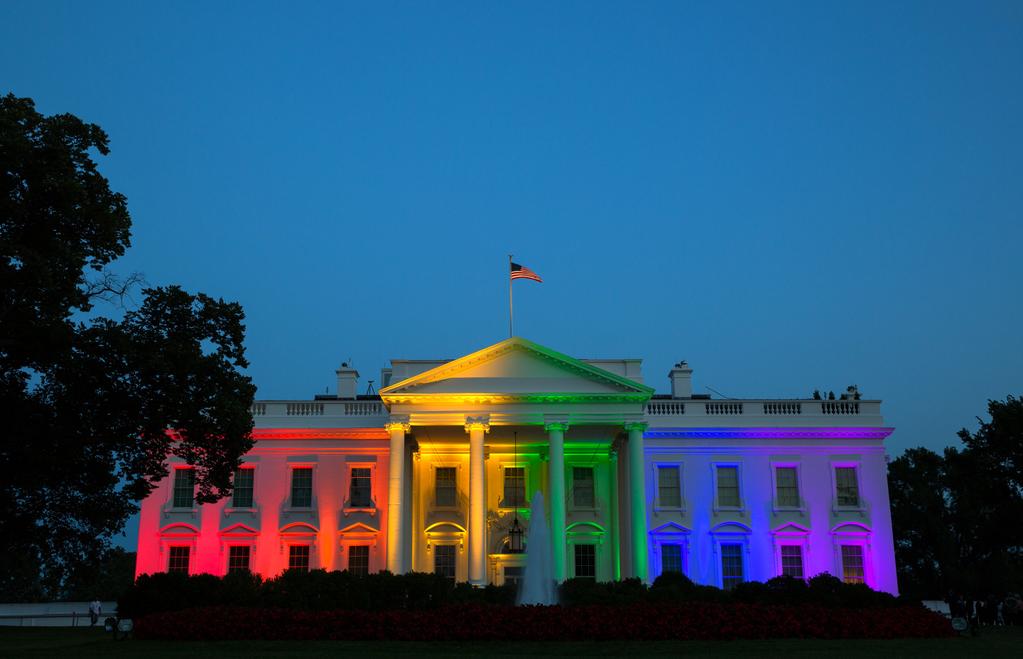Over the course of this election, and particularly in the aftermath of the Orlando terrorist attack, I’ve come under attack for my political identity. Who am I? For many, it’s complicated.
I’m a young person of color, which means that I’m a Democrat. I’m also a Christian raised by a military family, which means that I’m a Republican. None of this matters, though, when people find out that I’m gay. To many, it is unfathomable that someone who is gay isn’t liberal.
I’m not. I’m a card carrying, god fearing, gun-loving conservative Republican, and that drives people crazy. On a near-constant basis I have to answer the question, “How on Earth can someone be gay and Republican?” I tell them that my preference for men doesn’t affect my political ideology, but they don’t seem to listen. To many, knowing how a person identifies means they think they know who a person is.
This obsession with ready-made identities simply doesn’t reflect political reality. Women are more than abortion advocates and tampon tax warriors. Gays are more than marriage equality activists. Mexicans care about more than immigration policy. Blacks seek legislation beyond criminal justice reform. To suggest that a minority does not care about our country’s foreign policy, fiscal policy, or non-social domestic policy is insulting. These stereotypes have got to be abandoned. At best they’re simply not correct. At worst, they’re racist, sexist ideals that have no place in modern conversation.
For a society so obsessed with expressing open-mindedness and tolerance, it is incredibly hard to be accepted as a nonconforming minority in politics.
The most obvious example of this phenomenon comes to from the world of transgender politics. Recently, it’s become necessary — especially among liberals — to call all trans women “stunning” and “brave” by default. Given how important diversity is to the left, doing so has become the politically correct thing to do.
Unfortunately, we soon found out that not all trans people were created equal. Some were just a little too diverse for comfort.
That leads us to Bruce Jenner and Caitlyn Jenner. I refer to them separately because both identities, and the reactions thereof, couldn’t be further separated.
Bruce Jenner was an Olympic athlete and an American icon. He exuded the macho qualities many expected from the perfect male specimen. He was a man, and people respected him because he fit what we expected men to be.
Fast forward through the awkward phase during which he straddled the line between man and woman publically, and out emerged Caitlyn Jenner, the world’s most prominent transgender woman. As the newest icon of the trans community, Caitlyn Jenner received all of the politically requisite praise. People in the trans community loved having someone so prominent bringing attention to their cause, so she was lifted atop a pedestal by liberal idealists. The only problem was, Caitlyn Jenner was no liberal. She’s conservative.
Once this “scandalous” news broke, public opinion of Caitlyn Jenner turned almost overnight, despite the fact that nothing had actually changed. The View’s Joy Behar called Jenner’s support of Republicans akin to “Jews for Hitler.” Raven-Symone then suggested that Caitlyn hadn’t “lived in the transgender world” long enough to voice a political opinion, as if being trans and being Republican are inherently incompatible. Jenner herself admitted, “I have gotten more flack for being a conservative Republican than I have for being trans.”
As a gay conservative, this is my life. People shoehorn certain identities into predetermined categories and ignore or vilify those who reside outside the norm. People are so focused on race, sex, orientation and gender that they don’t see the experiences that actually make up a person’s political ideology. Caitlyn Jenner is a business woman. She’s wealthy. If she weren’t trans she would be expected to be Republican, but people can’t seem to get over the fact that she doesn’t subscribe to the political values that many associate with the trans community.
It can be argued that the entirety of politics is centered on generalization, as political parties can never exactly mirror the values of each of its members. In order to have any sort of coherent path forward, parties must make certain assumptions about the people they represent. For instance, it is safe to assume that a member of the LGBT community will vote Democrat. While that isn’t a conclusion that is necessarily true, it is at least backed up by data. For this reason, it isn’t entirely absurd for a liberal politician to assume they speak for much of the LGBT community.
What is absurd, however, is criticizing a person when they refuse to fall in line behind a specific ideology just because most of their peers have. Each individual in this country has the right and duty to make their own political decisions. Members of the LGBT community are no exception.
This need to create a singular political ideas around various identities turns individuals into caricatures rather than people, and it forces people to conform or be outcasts within their communities. So let me be Asian, Christian, gay and conservative – and let Bruce be Caitlyn, Republican, stunning and brave.




